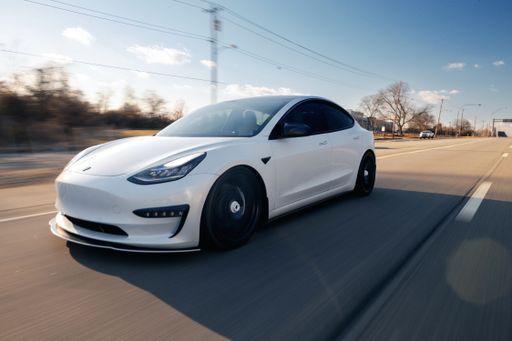Safety Concerns Surrounding Heavy Electric Vehicles
A recent crash test involving a Rivian truck highlights safety concerns about heavy electric vehicles and their potential risks.

Rivian Truck Blows Through Steel Guardrails in Crash Test
A crash test conducted by researchers at the University of Nebraska-Lincoln's Midwest Roadside Safety Facility revealed that a Rivian R1T truck, weighing over 7,100 pounds, easily broke through steel guardrails at a speed of 60 mph.
This test raises concerns among safety experts about the potential dangers posed by heavy electric vehicles (EVs). The video footage of the crash shows that the truck maintains a high speed even after crashing through the guardrails, highlighting the need for improved safety measures.
Experts suggest that as the average weight of new cars continues to increase, there will be an increased risk of accidents and potential harm to the surrounding environments.
Heavy Vehicles and EVs Raise Safety Concerns
Safety experts have long raised concerns about the risks associated with heavy vehicles and the implications of heavier EVs on road safety.
Last year, the acting administrator of the National Highway Traffic Safety Administration expressed concerns about the higher fatality rates associated with heavier vehicles. While larger vehicles may provide more safety for occupants, they also pose a greater risk to other vehicles and communities on the road.
A recent analysis of pedestrian crashes revealed that pickups, SUVs, and vans with higher hood heights are significantly more likely to cause fatalities compared to smaller cars. In addition, heavier EVs could lead to infrastructure issues, such as the collapse of older parking garages.
Increasing Demand for Larger Vehicles and Heavier EVs
The rise in demand for larger vehicles, coupled with the adoption of EVs, has led to an increase in the weight of cars on the road.
Electric vehicles, including SUVs and trucks, tend to be heavier than traditional gasoline-powered cars due to the weight of their batteries. Experts estimate that EVs can weigh up to 30% more than gas-powered vehicles.
Automakers have responded to consumer preferences by focusing on larger vehicles, such as SUVs and pickups. As a result, EV automakers have no choice but to meet this demand with electric models in the same size category.

